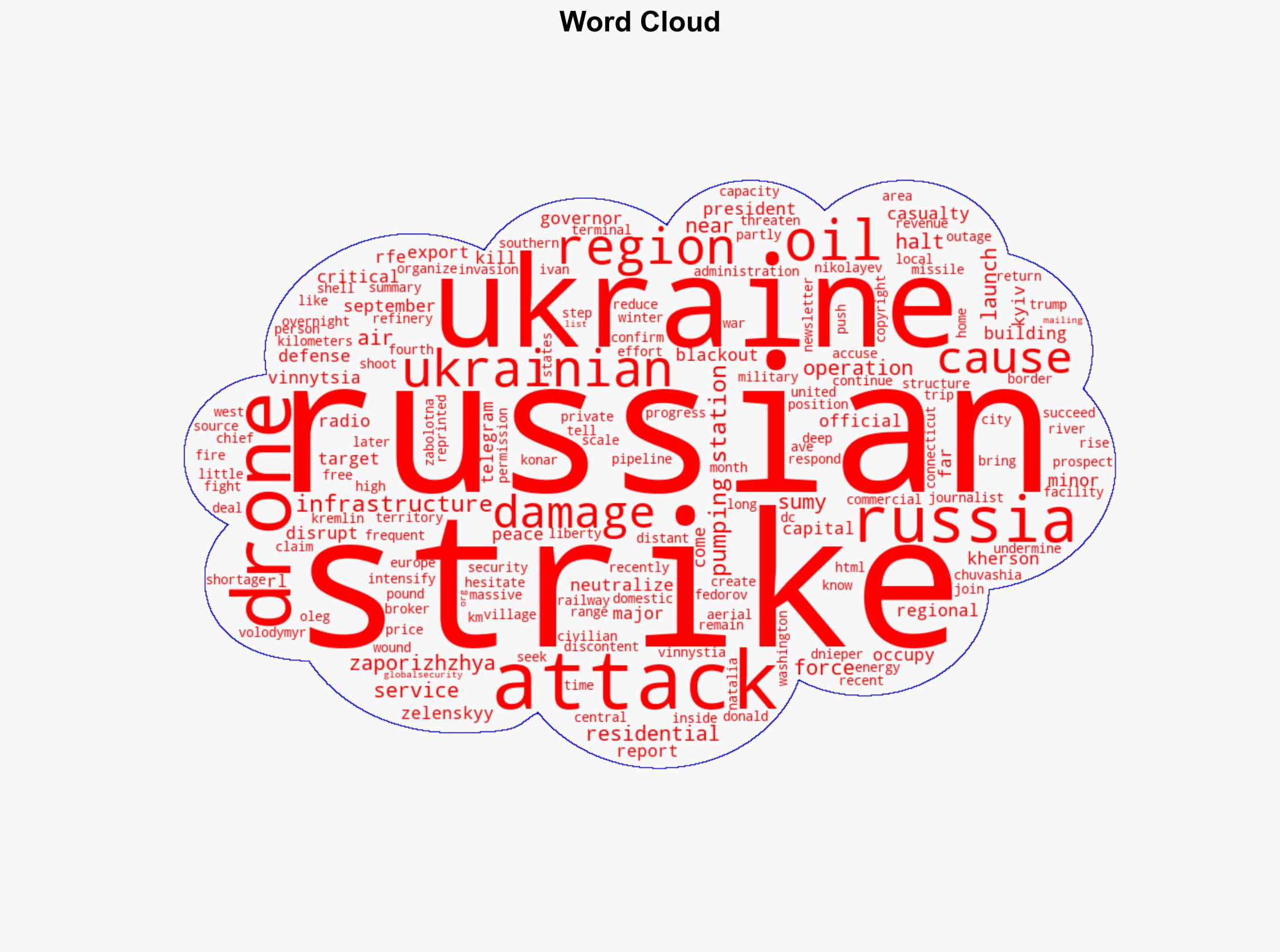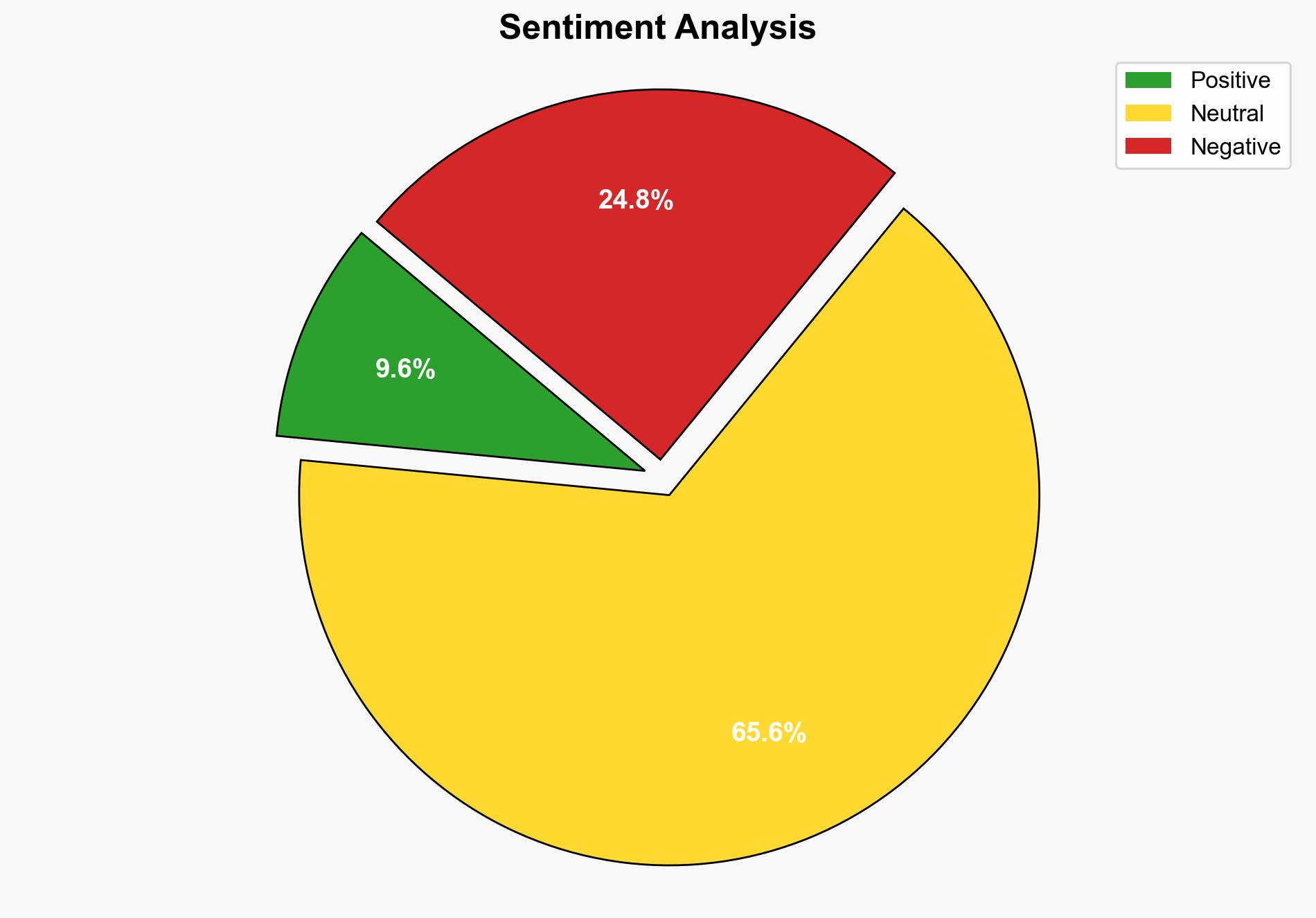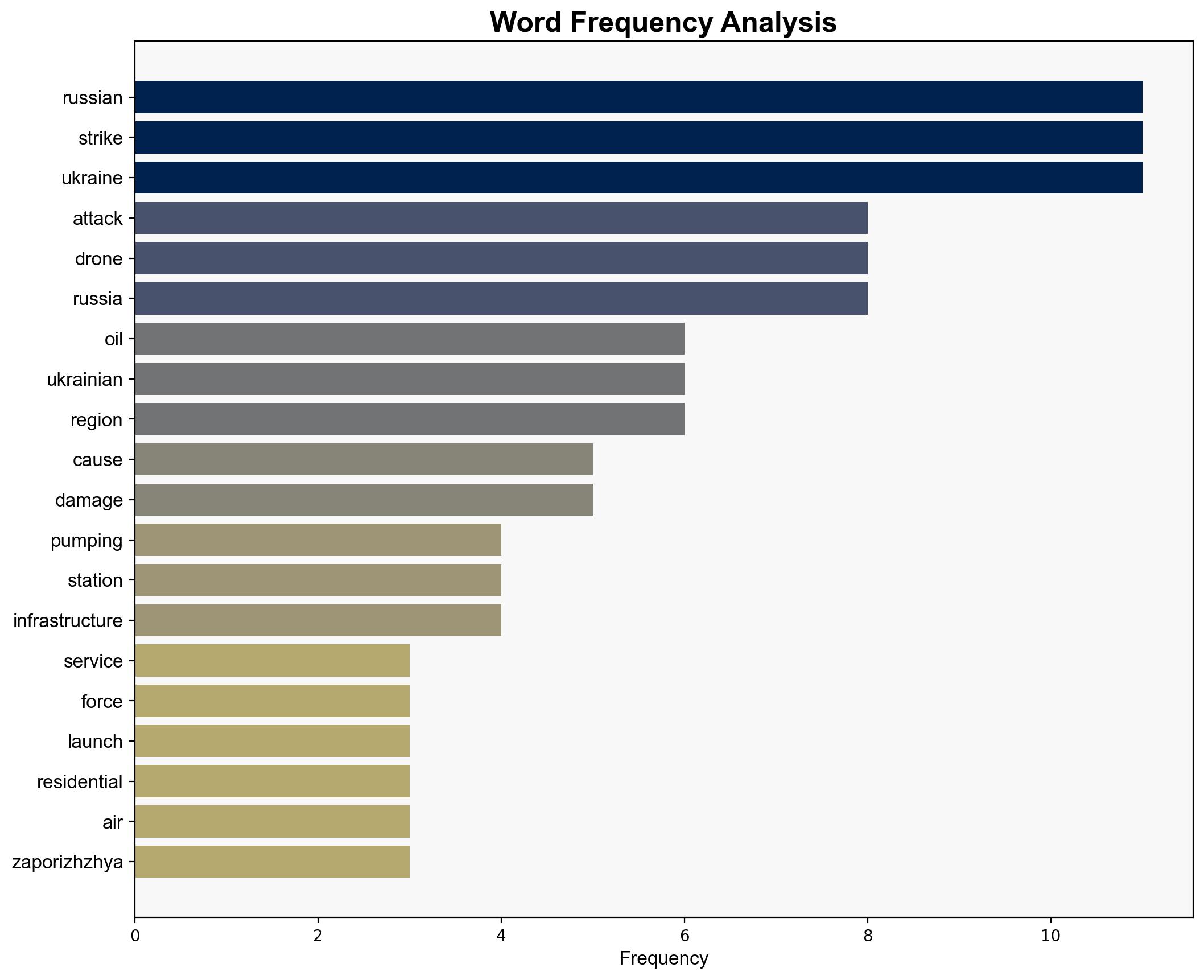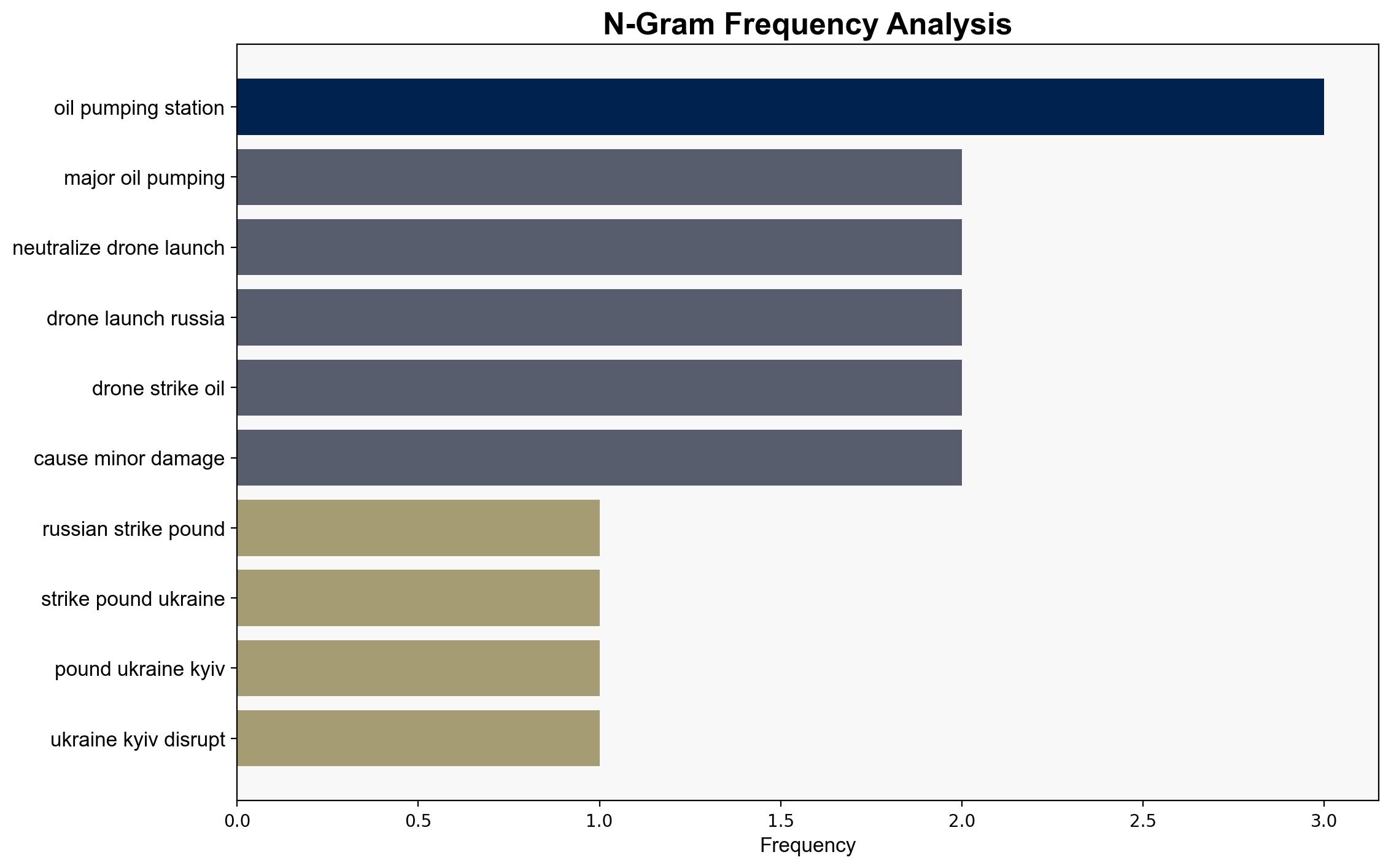Russian Strikes Pound Ukraine As Kyiv Disrupts Major Oil-Pumping Station 1200-Km From Border – Globalsecurity.org
Published on: 2025-09-28
Intelligence Report: Russian Strikes Pound Ukraine As Kyiv Disrupts Major Oil-Pumping Station 1200-Km From Border – Globalsecurity.org
1. BLUF (Bottom Line Up Front)
The most supported hypothesis is that Ukraine’s strategic targeting of Russian oil infrastructure aims to undermine Russia’s war capabilities and economic stability. This is supported by Ukraine’s recent pattern of attacks on energy infrastructure. Confidence level: Moderate. Recommended action: Increase monitoring of energy infrastructure attacks and assess potential impacts on global energy markets.
2. Competing Hypotheses
1. **Hypothesis A**: Ukraine’s attack on the Russian oil-pumping station is a strategic move to disrupt Russia’s energy supply and weaken its war effort. This aligns with Ukraine’s recent focus on targeting Russian energy infrastructure to reduce export revenues and create domestic challenges for Russia.
2. **Hypothesis B**: The attack is a retaliatory measure in response to intensified Russian strikes on Ukrainian infrastructure, aiming to pressure Russia into reducing its military aggression. This suggests a tit-for-tat strategy where Ukraine seeks to demonstrate its capability to strike deep within Russian territory.
Using ACH 2.0, Hypothesis A is better supported due to the consistent pattern of Ukraine targeting energy infrastructure, which aligns with their strategic objectives to weaken Russia economically and militarily.
3. Key Assumptions and Red Flags
– **Assumptions**: It is assumed that Ukraine has the capability to conduct long-range drone strikes effectively. It is also assumed that disrupting Russian energy infrastructure will significantly impact Russia’s war capabilities.
– **Red Flags**: Lack of detailed damage assessments from the Russian side raises questions about the actual impact of the attack. Potential bias in reporting from both Ukrainian and Russian sources could skew perceptions of the attack’s success.
– **Blind Spots**: Limited information on Russia’s contingency plans for energy infrastructure disruptions could lead to underestimating their resilience.
4. Implications and Strategic Risks
– **Economic**: Disruption of Russian oil infrastructure could lead to fluctuations in global oil prices, impacting international markets.
– **Geopolitical**: Escalation of infrastructure attacks could strain diplomatic efforts and reduce prospects for peace negotiations.
– **Psychological**: Continued attacks may increase domestic pressure on Russian leadership, potentially leading to more aggressive military responses.
– **Cascading Threats**: Increased cyberattacks on energy infrastructure could follow, exacerbating the conflict and impacting civilian populations.
5. Recommendations and Outlook
- Enhance intelligence sharing with allies to monitor and predict further infrastructure attacks.
- Prepare contingency plans for potential disruptions in global energy supplies.
- Scenario Projections:
- Best: Successful diplomatic intervention reduces infrastructure attacks.
- Worst: Escalation leads to broader regional conflict and significant global economic impact.
- Most Likely: Continued tit-for-tat attacks with limited diplomatic progress.
6. Key Individuals and Entities
– Volodymyr Zelenskyy
– Oleg Nikolayev
– Natalia Zabolotna
– Ivan Fedorov
7. Thematic Tags
national security threats, cybersecurity, counter-terrorism, regional focus





